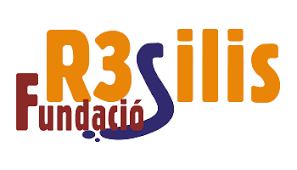Project description
The prooject is under ERASMUS+ PROGRAMME, STRATEGIC PARTNERSHIPS (KEY ACTION 2), AGREEMENT NUMBER 2020-1-ES01-KA204-082783 Play is an unquestionable right for all children and young people and is a basic activity in the life and global development of people. Play is in its essence an end in itself. In a secondary level, play can also be a tool with which to work cross-cutting skills. Through play and concretely through board games, cognitive and social development is fostered: rules are learned and assimilated, thought and strategy are stimulated, decisions are made, conflicts are resolved, and interaction is carried out. Play has a decisive role in the integral development of children and young people from an emotional, physical, intellectual and social well-being perspective.
The Domus Ludens Project- A House that plays has as general objective improving – through play, and in particular board games – the subjective wellbeing and acquisition of skills of young people in residential care. This is a vulnerable population segment that enters residential care
centres after having suffered a situation of neglect or abuse in their family of origin. They often suffer emotional needs and other associated
difficulties such as attention deficits, impulsivity and sociability issues. According to our experience, protection services tend to prioritize actions focused on the promotion of education, employability, autonomy, and the relationship with the family of origin, and often relegate the benefits of play and games as a tool of integral development to a secondary level, either by a lack of training, space or resources.
This general objective will be achieved through 3 specific objectives: (1) To train educators from residential care services as ludic agents: a figure able to analyse the specific context and needs of youngsters in care, and based on an evaluation, structure board game spaces in a programmed and sustained way. (2) Implement the right to play in residential care services through a specific play program based on board games and the presence of the ludic agent. (3) To evaluate the impact of the figure of the ludic agent and the board game programme in the subjective well-being and the acquisition of competences of young people in residential care.
The project involves 5 partners from 3 European countries with 3 complementary profiles: 1) services providers for youngsters in care (Resilis Foundation (Spain), S & S gem Gesellschaft für Soziales mbH (Germany) Fundacja Samodzielni Robinsonowie (Poland) 2) experts in
games (Cooperativa La Juganera (Spain)) 3) with academic expertise (Liberi, Universitat de Girona).
The participants, trained as ludic agents’ trainers, will replicate the knowledge learnt in national trainings, training a total of 30 youth workers from Spain, Poland and Germany. These 30 youth workers trained as ludic agents will apply their knowledge in 8-month pilot experiences in their organizations in which they will implement structured board game spaces with a minimum of 100 young people in care. The pilot experience will be evaluated by the University of Girona. The results and conclusions of the evaluation will be the core of the third intellectual product IO3. “Evaluation of the impact of participation in play spaces in a regular and systematic way on the acquisition of skills and the well-being of young people
in residential care”.
The expected impacts will be: 1) Improvement of personal skills and general well-being of around 100 youngsters from Spain, Germany and Poland 2) Improvement in the climate of coexistence in the residential centres in which these young people live, c) training of 30 youth workers as ludic agents d) Awareness of public authorities and organizations in the field of child and youth care on the benefits of promoting the right to play and making training tools available to them d) improvement of the relationship of young people with their immediate surroundings, specifically the school and the community.



